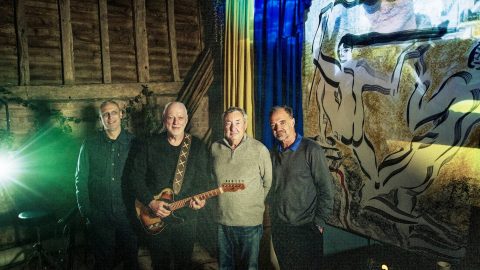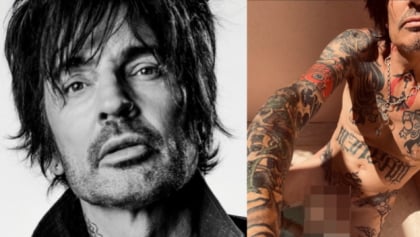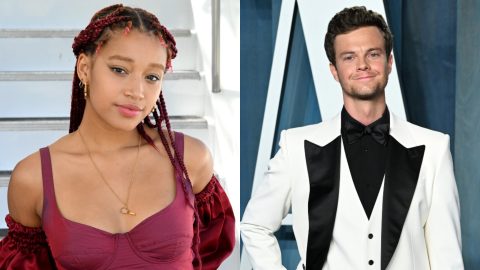
I’m 30 years old and I’ve suddenly found myself giving a shit about the Moomins. I don’t harbour any bad feelings toward the franchise – these gormless goofs have done nothing to wrong me – I’ve just never had any reason to care about them. That was until I watched the latest trailer for Snufkin: Melody of Moominvalley, which I somehow felt an instant connection with even though I’ve only just learned they’re trolls (I always assumed they were weird ghosts or something).
As for why this trailer gave me the chills, I have the gentle melodies of Sigur Rós, the Icelandic post-rock band scoring the game, to thank for that. While I’m a sucker for sad-sounding ambient music – The American Dollar, Ólafur Arnalds, Max Richter, and Hammock are some of my favourites – the way this Moomins trailer made me feel is testament to the connective power of music; the way that certain notes or sounds can spark this beautiful feeling of familiarity or nostalgia.
This is something the video game industry has known and utilized since its heydays in the early ‘90s. Leveraging the popularity, identity and unique sound of famous bands and artists is a great way to get people to notice your game, and plenty of big names have lent their talent to video games. And I’m not talking about tunes they’ve already released popping up in licensed soundtracks for games such as Tony Hawk’s Pro Skater and Grand Theft Auto. I mean original music written specifically for video games.

Some of the most well-known examples are Trent Reznor from Nine Inch Nails scoring Quake, Paul McCartney writing music for Destiny and Michael Jackson’s team working on Sonic The Hedgehog 3 – a rumour which Yuji Naka only recently confirmed in a random tweet – but the ‘90s and ‘00s were basically the golden eras for collaborations like these.
Stewart Copeland from The Police scored the first three Spyro games, ex-Guns‘ n’ Roses guitarist Ron Bumblefoot is responsible for the musical madness in Wild Woody, and David Bowie contributed music to Quantic Dream’s PC game, The Nomad Soul. Other big names include Nile Rodgers (yup!), John Mayer and Amon Tobin – and don’t even get me started on that important period of licensing history when the biggest names in rap and hip-hop were starring in games of their very own, whether that’s 2005’s 50 Cent Blood on the Sand or 2003’s Def Jam: Vendetta.
Basically, there was a point in time when the music industry couldn’t get enough of video games, and then things started to die down. Sure, there have been some games with original music from bands in the last decade – the noisy Sheffield boys 65daysstatic scoring No Man’s Sky and indie-folk outfit Daughter working on Life is Strange: Before the Storm are two excellent examples – but nothing’s come close to the frequency of what was occurring way back when. Until now, that is.
In the last year alone, we’ve had Dr Dre feature in his own story and drop new music in GTA 5, Ghostface Killah and Raekwon from Wu-Tang Clan spitting bars in Teenage Mutant Ninja Turtles: Shredder’s Revenge, and chart-toppers Utah Saints dishing out beats in Final Vendetta. Most recently, the breakbeat king Machine Girl managed to write two albums worth of music for Neon White, and metalheads have new music from the vocalists in Arch Enemy, Trivium, Lamb of God and System of a Down to look forward to when Metal: Hellsinger releases later this year.

Personally, I’ve got a lot of time for the ‘90s manifesting itself in video games again, and I suspect this resurgence of famous bands and musicians composing music for video games is only going to get louder and louder.
I reckon a lot of this will be a result of the music industry’s latest fixation on the metaverse, a term everyone volleys about despite no one being able to define it. There’s a long line of management companies and record labels fighting to find a place in the virtual concert space, eager to get their music in front of millions like Travis Scott, Ariana Grande and Lil Nas X have done in Fortnite and Roblox.

But as they’re likely finding out, getting a foot in the door in the virtual concert space is harder than making it into Berghain surrounded by an entourage of fuckbois cladded in deliberately ripped ASOS clothing. As a result, I suspect we’ll see more music industry big dogs honing in on video games rather than seeking out metaverse alternatives. It makes sense for artists to sync their music into video games with established audiences rather than metaverse experiences with the graphical finesse of a PS1 game and an audience comprised mainly of crypto shills.
It’s great to see the worlds of video games and music working together in such harmony again, and I hope we see plenty more of it. It’s a win-win for everyone. Bands and artists get to have their music heard by potentially millions, game studios can bring in new players, and all of us get to bask in some brilliant music in the process.
If you liked diving into the world of video game music, you may enjoy reading our Hey! Listen column.
The post Tons of famous bands and musicians are composing for games right now, and we’re here for it appeared first on NME.








